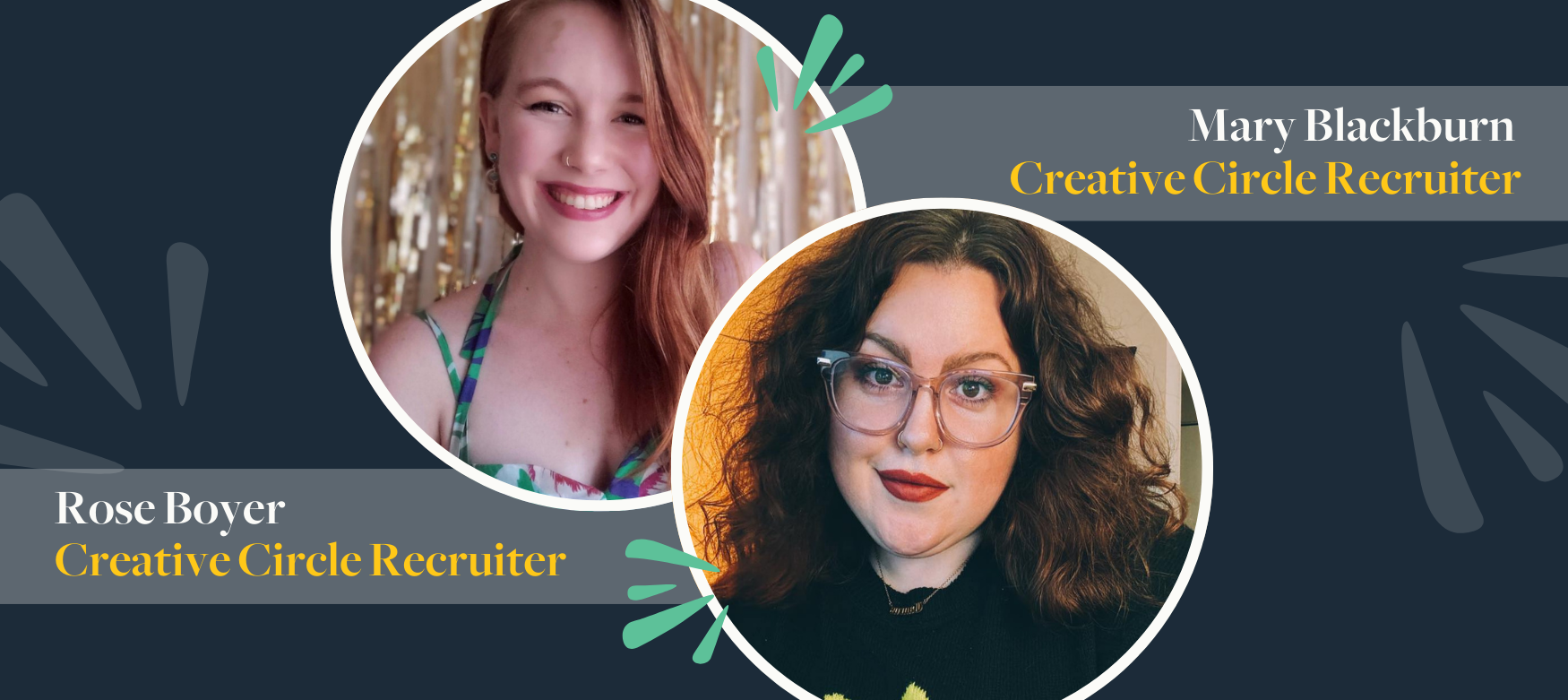When you embark on a new freelance career, you don’t realize right away how much you have to learn. Mentors are a crucial resource to help you calibrate what’s normal—and this is a welcome time for any input that keeps you feeling even keeled. However, people in related fields who are otherwise generous with their advice can be cagey when it comes to money. This seems to be lessening somewhat as society increasingly embraces mutual transparency in social, political, and professional contexts.
But still.
Learning how to legitimately ask for, and receive, the compensation you are worth is tricky to navigate, especially at first. Personally, I have been appreciative of what I’ve learned from the recruiters at Creative Circle—they’ve provided me with trustworthy perspective on the value of my experience. And before gig culture was the thing it is now, most people didn’t have the benefit of that advice. It’s crucial when you’re participating in the freelance economy, and it’s arguably even more valuable to have when you’re negotiating an opportunity for something long-term and/or full-time.
There may still be a bit of stigma when it comes to speaking openly about money, but your career is not the place to be demure about it. It’s also not the place, however, to act cocky, entitled, or unreasonable. Navigating that fine line is a lot easier the more information you have. Luckily, there are a number of resources and methods to choose from when it comes time to talk numbers—and knowing when that time is, by the way, is another issue in itself.
Gaining knowledge and experience in the freelance world can involve a lot of turmoil, so I took a moment to talk to Creative Circle New York’s Lead Recruiter, Brian Young, and ask him if he could help clear some of the fog.
What are some of the resources you would recommend to freelancers who are trying to determine what industry standards are—including variables like location—for rates on the types of services they’re offering?
I’d encourage freelancers to use Freelancers Union and Glassdoor. However, nothing tops asking questions of people immersed in the industry—such as your peers or a recruiter.
What about tools to help determine where you stand within the industry’s range? Are there any recommended resources that can help gauge the worth of your experience on the market?
There are many sites that can assist in figuring this out—from glassdoor.com, payscale.com, and even professional organizations that regularly do studies (like AIGA). Those are all great resources for generalized ideas about ranges, but it really comes down to conversations with peers, mentors, and industry professionals (like recruiters). We coach people that it’s about paying attention to the market, what we’ve seen book and at what price point.
When and how is it appropriate to bring up rates during an interview? Should you wait until they decide to offer you the job first?
If you are going through Creative Circle, you can leave that to us! If you are going in on your own, I would read the room and bring it up within the first two meetings. It can always be brought up organically, or when reviewing your understanding of the project or position. It can be in the form of a question, or by simply discussing your “usual” rates.
Once a rate has been set with a client, are there guidelines as to how far into the relationship you should get before it’s appropriate to raise your rate?
I say wait at least six months UNLESS your role or responsibilities shift.
What are some common mistakes people make that can result in their lowballing themselves?
If they are really interested in the project and really want to work with the client, they will take a lower rate than usual. Additionally, candidates could be experiencing a slower time and “just want to work.” Either situation sets a lower precedence, and candidates will have to work to dig out of that hole.
What kind of guidance can you offer when it comes to negotiating?
Always shoot a little higher than you actually want, and another suggestion would be to always bring up rates as “open for discussion.”
Have advice that’s worked for you? Share it in the comments!
Marjorie is a former Creative Circle candidate based in Portland who recently accepted a full-time offer for her dream job. She is a writer/editor and stylist/producer with an emphasis in the design world. If you are interested in working with someone like Marjorie, please contact your nearest Creative Circle office.



